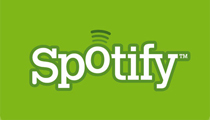This website uses cookies so that we can provide you with the best user experience possible. Cookie information is stored in your browser and performs functions such as recognising you when you return to our website and helping our team to understand which sections of the website you find most interesting and useful.
Business News Digital
The future is bright for music, says Spotify man
By CMU Editorial | Published on Tuesday 7 April 2009

If Google reckon that the only way for digital music services to work is for songwriters to provide their music at bargain basement prices, well Spotify chief Daniel Ek disagrees, though he’s still at the giddy “spending start-up investment” stage of his venture, so he might be singing a different tune in a year or so. But let’s stay optimistic shall we?
For now Ek reckons that the potential is there for the music business to boom anew, not by selling CDs or MP3s, but by providing access to music in engaging ways – so that most people, or at least enough people, choose to pay. He might be talking about Radiohead/Trent Reznor style pay-what-you-want, have-this-for-free-but-buy-this ventures, or he might be talking about advertising/subscription funded streaming music services with green logos.
Speaking to The Guardian, Ek said: “I think the music industry as a whole could be in a better position than it has ever been. There has been a massive shift from ownership to access but people will pay for music if packaged correctly and it offers them something special. Music is already available for free. 95% of all music downloads are currently illegal, it is pointless to resist that. Every time that you shut down a service like Napster another one will spring up. Instead, you have to make paying more attractive by offering fans more like exclusive content, interviews, live concerts”.
Of course while everyone loves Spotify, the more business-savvy wonder how much they are paying the record labels and publishers in order to offer such user-friendly on-demand streams, whether they are benefiting from special start-up rates that, like with YouTube, will be negotiated up in the future, and whether anyone will really pay ten pounds a month to get rid of ads, and if not whether ad revenues will ultimately pay for it all once start-up cash runs out. Ek is confident but not overconfident about his fledgling service, telling the paper: “We just hope that people will use it and that it will create significant revenue for the music industry. That way we can help support a fragile ecosystem so that artists can go on making music”.
I hope so too.





